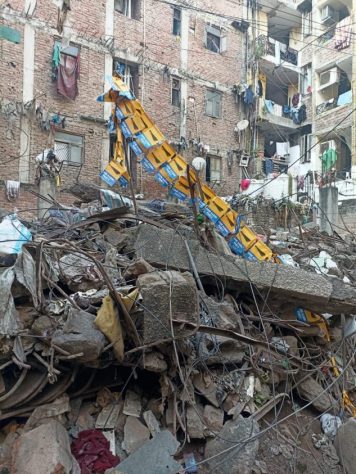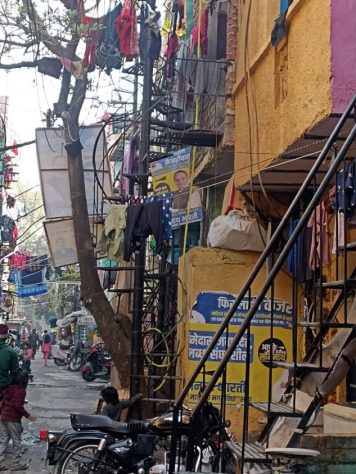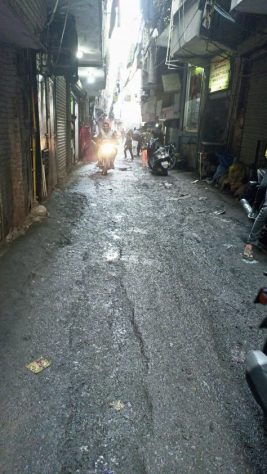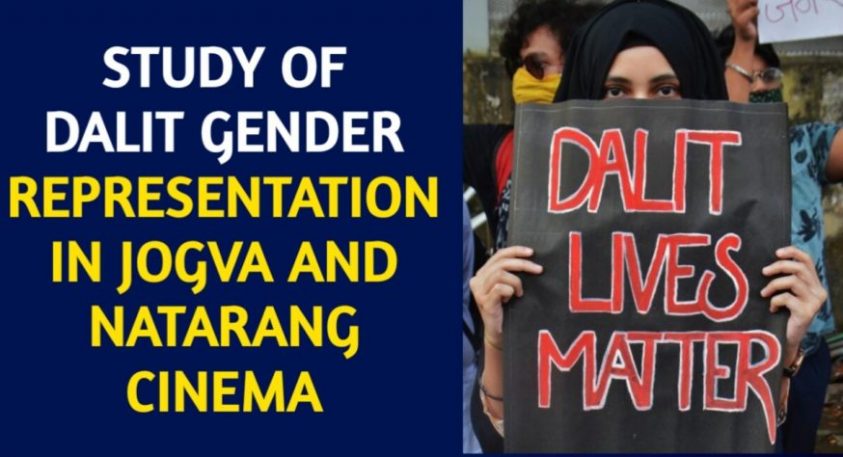14 January 2025
Story By Nunihar
The following report provides a detailed account of the on-ground observations made during a visit to various areas in Delhi, including Begumpur village (Indra camp) and Panchsheel vihar (Kachhi colony), on January 14, 2025. The purpose of this visit was to understand the perspective of local residents in light of the upcoming Delhi elections. Indra camp, known for its diverse population of Dalit, Muslim and Christian communities, as well as a mix of daily wage workers and upper-caste residents, offered a striking contrast between well-developed areas and underdeveloped slums. Similarly, Panchsheel vihar, a microcosm of caste and class diversity, provided further insight into the challenges faced by marginalized communities. The people we encountered expressed a range of opinions regarding the current government, led by the Aam Aadmi Party (AAP), with many citing disappointment over unfulfilled promises, inadequate support for women and workers, and insufficient educational resources for students. Issues such as rising inflation, poor infrastructure, and concerns over safety and security were also common themes discussed by residents across different demographics. This report captures their voices, grievances, and hopes for change, as they prepare for another crucial election.

On the ground
Begumpur Village (Indra camp)
Indra camp is most populated with people from Dalit Identity, a mix of different religions Muslim and Christian. We also met workers of different occupations and also people who work here but live in some other part of Delhi. This place is known for its unique location as it lies nearby upper caste and upper class society and a big market. This camp was like slums with open sewers and congested houses with bad streets. With no proper sewerage, the lanes were filled with the garbage and smelling, the people and children of these slums were forced to walk and play in that area itself. The irony was that within the same vicinity, there was another area adjacent to that slum. This side of the area was clean, there were big mansions and overall a much cleaner society. People who are living here were from different religions and upper caste Hindus and
Sikh community. The only thing we saw was a broken street which always happens every year before elections and this has become very common over the years in Delhi. While talking to the people of that area consisting of different age, gender, and occupation, we found various opinions.
Wage worker: The people who work on daily wages were most disappointed with AAP. According to them, AAM Aadmi Party has done nothing except then unnecessary jobs like “pradushan ke kaaran building ka kaam rok diya, kabhi kahte hain majaduron ke khaate mein paise daal denge, lekin ab tak kuchh nahi mila” (Building work was stopped due to pollution, sometimes they say they will deposit money in the workers’ accounts, but till now nothing has been received). “Pradushan rukne wala nahi hai, dihaadi majaduron ke liye kuchh kaam karen aur unake liye adhik kaam uplabdh karen taaki vo kamaate rahen aur apanee dainik jaruraten puri kar saken” (pollution is not going to stop, do some work for daily wage workers and create more work opportunities for them so then they can keep earning and fulfil their daily needs). In addition to criticism: “usane hamaari kamai khali aur hamaara jeevan kathin bana diya.” (with vituperation they said he just ate our earnings and made our life arduous.) But few other workers said he had done work, which is also a visible example: Mohalla clinic, Free buses, Electricity free and Free water. But other governments don’t work at all and just mock the poor. Some other people in that place were seen to choose BSP as they thought both AAP and BJP are not valuable for their vote.

Females: women were also frustrated and started rebuking on AAP as there point was :
● Not providing enough resources to women.
● Just buses are free but the situation inside the buses the women are not treated well. People and even the conductor or bus driver misbehave with them so many times the bus does not stop for them. Most of the females come to Malviya nagar from Sangam Vihar for work. ● They said women are now going out but at what cost where is the security ‘ females travel in bus and cases like rape and sexual harrasment and sexual assault are becoming very common’. How to resolve this ?
Auto Driver: auto drivers were also seen divided.
● They said Inflation is very high and normal people are almost in the position of death and life. Few people can’t afford vegetables or fruits as the prices are so high.
● Things have become online and this is the biggest issue for the people who can’t read or don’t know how to use smartphone apps. Their jobs have become very difficult because of this.
● Only a few parts of Delhi have well maintained streets but the rest of the areas especially local streets are in bad condition.
Students: School students, when asked about the state of education, expressed that things have not changed much from the past. Despite claims of a digitized and advanced education system, the reality on the ground is quite different.
Students said, “The government introduced a new subject, but no teachers have been assigned to it. Because of this, we failed as we didn’t know anything about the subject. We are also not taken to the library even once a week, and sometimes not at all. Computer classes are also infrequent, occurring only 2-3 times a month.” (8th-grade students)
They added, “Books are not distributed on time. Often, we receive only half a set of books or 2-3 books are missing. Universities do not provide online materials or classes. They promised one online session (but the link doesn’t work) and one offline session at the center. However, in the offline sessions, they mostly conduct classes for only 2-3 subjects, and for additional subjects, there are no materials or classes available.”
At the college and university level, students mentioned, “The library admins do not allow us to use the libraries.” (DU SOL students)
“Teachers are not available, and there is a frequent change in faculty every quarter.” (Regular students) They also highlighted the issue of high fees in universities, which prevent some students from enrolling.
Panchsheel Vihar (Kachhi colony)
Panchsheel vihar is a very diverse area, consisting of people from different castes, classes, and religions, with a majority of Hindus, followed by Muslims, foreigners, and refugees. Upper-caste Hindus are mostly wealthy or middle class, owning their own homes, with a few renting. The lower-caste people mainly live on rent. Kachhi colony is predominantly populated by Bahujan and Dalit families, whose occupations include wage laborers, sweepers, garbage collectors, and distributors. The garbage collectors, who once lived there, have mostly migrated due to the claims of the upper-caste Chauhans, who hold economic and social power. The Chauhans asserted that the land belonged to them, despite there being no such claim just a few years ago. These families had been living and working there for generations, but now 90% of them have left. We learned from a 17-year-old boy, who continues the work with his family, that the Chauhans had instructed everyone to vacate the land without offering any compensation, stating it was their property and that it would be best for the families to leave. The government has provided no assistance or compensation for these displaced families.

The young boy mentioned that his family and three to four other families remain, while many have either become homeless or taken rental housing. However, due to a lack of skills, they have been unable to find work. The major challenge is that other people refuse to hire them, and they cannot resume their previous work.
Conclusion:
The issues faced by the people in Delhi, from the working class to marginalized communities, continue to persist day after day. Regardless of the ruling party—AAP, Congress,—none of the governments seem to effectively address the public’s needs, leaving many frustrated and disillusioned with the system. The lack of substantial change, particularly in the areas of basic services, security, and economic stability, underscores the systemic failures in governance. At Begumpur village (Indra camp), we witnessed a stark contrast between the well-maintained areas and the dilapidated slums, highlighting the widening gap between different sections of society. Wage workers expressed frustration over the lack of concrete actions taken to support them, especially in terms of job opportunities and financial compensation. Women felt insecure despite the promise of free transportation, as issues like harassment and mismanagement in public transport remain unresolved. Similarly, students revealed gaps in the education system, such as unavailability of teachers and delayed resources, further exacerbating their struggles. In Panchsheel vihar, the situation was equally concerning, as families from the Dalit and Bahujan communities faced displacement and lack of government support, leaving them vulnerable without compensation or alternative job opportunities. The rising economic challenges, particularly inflation, are adding to the general sense of despair among the population, making it clear that many feel neglected by the current political leadership.
Query:
How do these governments function, and why is there such a lack of transparency in their operations? Why do the working class and marginalized communities continue to struggle with access to basic necessities like water, food, and healthcare, despite repeated promises of change and reform?



